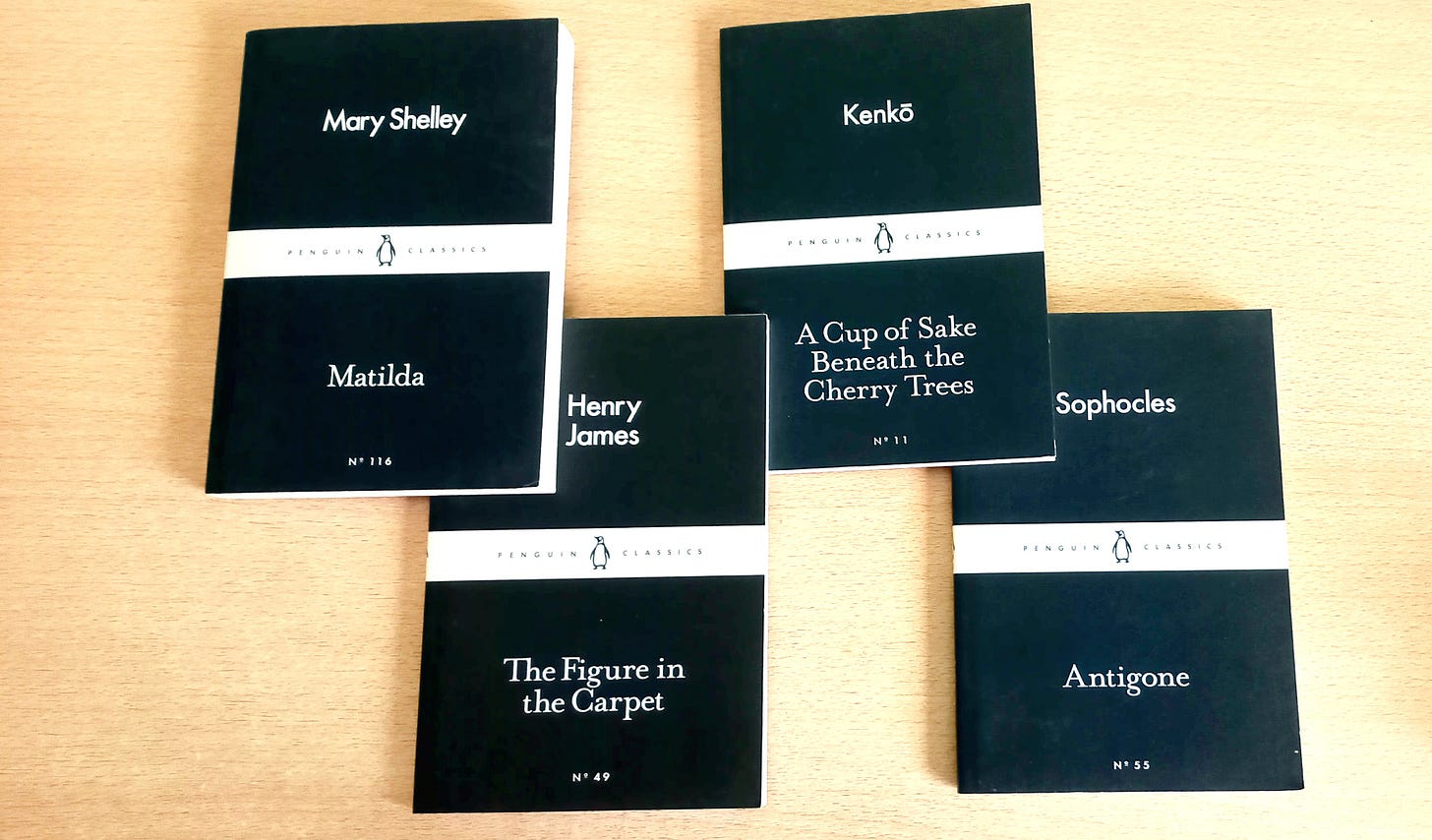Antigone - Sophocles (Translated by Robert Fagles)
Genre: Play | Timeline: Around 440 BC
"All men make mistakes, but a good man yields when he knows his course is wrong, and repairs the evil. The only crime is pride."
Plot
Polyneices and Eteocles, two brothers leading opposite sides in Thebes' civil war, have both been killed in battle. Creon, the new ruler of Thebes, has declared that Eteocles will be honored and Polyneices disgraced. Antigone and Ismene are the sisters of the dead brothers, and they are now the last children of the ill-fated Oedipus. Antigone wants to bury Polyneices' body, in defiance of Creon's edict. Ismene warns her of the death penalty, yet Antigone proceeds with her plan to uphold her familial duty towards her brother and moral obligation to God. Antigone argues unflinchingly with Creon about the morality of the edict and the morality of her actions and gets punished eventually for her defiance.
Themes
It explores the tension between personal morality and the laws of the state, the nature of justice, the role of fate in human life, and the danger of excessive pride. There is also a quieter yet powerful theme of sisterhood and unwavering familial duty.
Conclusion
It is surprisingly easy to read, ruling out my preconceived fear of approaching a Greek play. It is short, but it is intense with enormous themes that are still relevant. Particularly, Sophocles' call for democracy and his criticism of leaders who turn deaf ears to their people is imperative in many countries across the globe today.
-Preethi



